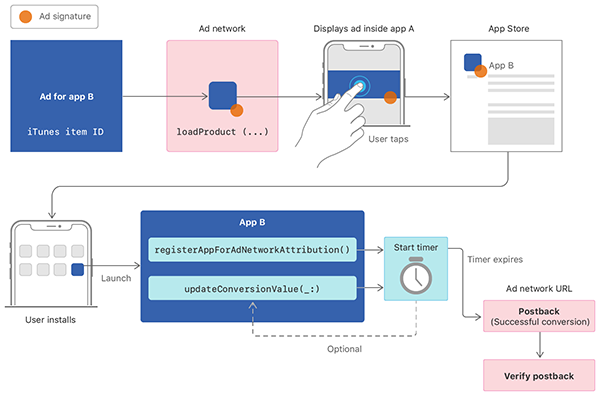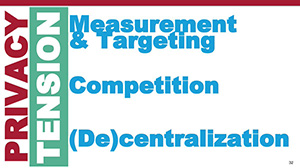 |
||||||||
|
||||||||
| Apple's SKAdNetwork Has Major Bugs | |

Image sourced from Apple
|
|
| It turns out that Apple may have been a little dishonest with their reasoning behind delaying IDFA changes until 2021. They originally said it was because developers weren't ready for the changes, but now Apple is admitting that SKAdNetwork has major flaws. John Koetsier over at Forbes says he's been hearing for weeks that major mobile ad networks have been processing hundreds of thousands of SKAdNetwork postbacks that don’t appear to have all required information. There are two crucial elements missing from the IDFA alternative. One is the "source-app-id," which helps marketers optimize ads by knowing which ads performed well. The other bug is that the conversion-value parameters are missing. These help marketers know what people are actually doing in their apps. |
|
|
|
 |
| What the FLoC? |
| Google says they've been experimenting with how Chrome’s Privacy Sandbox Proposal, Federated Learning of Cohorts (FLoC), will work in the real world. FloC is a privacy-focused method for creating segments of users based on browsing behaviors without cookies. The results of the experiments were published to GitHub and early signs prove that the methodology could work, but not everybody is buying it. As we've discussed many times before, smaller companies and some pubs attending W3C meetings, where the future of advertising as shaped by Google's Privacy Sandbox are being sorted out, feel that the Chrome team has the dominant voice in these proceedings. If Google controls whatever alternative to third-party cookies the W3C group decides, they'll continue to maintain a larger share of the advertising market. So far, FLoC has not passed the minimum bar for incubation within W3C, according to Digiday. |
| Sure, the data looks good. But some questions remain. AdExchanger's Big Story on Thursday questioned how the results would fare compared to targeting with third-party cookies? Also, despite Google calling on others to test their algorithm on their own datasets, many critics believe that the big G isn't really looking out for the ad tech ecosystem at large. If there's ever a time for pubs voice to be heard, the time is now. |











